
The Majestic Rodnei Mountains: Romania's Alpine Gem
The Rodnei Mountains, nestled in the northern part of Romania, offer a spectacular retreat for nature lovers and adventure seekers alike. As part of the Eastern Carpathians, the mountains boast an impressive range of flora and fauna, making it a haven for wildlife enthusiasts. The area is renowned for its breathtaking landscapes, from lush green valleys to rugged peaks, and provides an unparalleled opportunity to immerse oneself in the raw beauty of nature. One of the highlights of the Rodnei Mountains is its extensive network of hiking trails, catering to both novice hikers and experienced mountaineers. Visitors can explore the region's diverse terrain, which includes glacial lakes, cascading waterfalls, and dense forests. The Pietrosu Mare, the highest peak in the range, offers a challenging yet rewarding climb, with panoramic views that will leave you in awe. In addition to its natural wonders, the Rodnei Mountains are steeped in cultural history. The region is dotted with charming villages where traditional Romanian customs and crafts are still practiced. Tourists can experience the local way of life, enjoying homemade cuisine and learning about the area's rich heritage. Whether you are seeking adventure, relaxation, or cultural enrichment, the Rodnei Mountains promise an unforgettable experience.
Local tips in Rodnei Mountains
- Pack layers of clothing to accommodate the varying mountain weather.
- Bring sturdy hiking boots for the rugged terrain.
- Carry a map and compass as some trails are not well-marked.
- Visit in late spring or early autumn to avoid the summer crowds.
- Learn a few basic Romanian phrases to better interact with locals.
The Majestic Rodnei Mountains: Romania's Alpine Gem
The Rodnei Mountains, nestled in the northern part of Romania, offer a spectacular retreat for nature lovers and adventure seekers alike. As part of the Eastern Carpathians, the mountains boast an impressive range of flora and fauna, making it a haven for wildlife enthusiasts. The area is renowned for its breathtaking landscapes, from lush green valleys to rugged peaks, and provides an unparalleled opportunity to immerse oneself in the raw beauty of nature. One of the highlights of the Rodnei Mountains is its extensive network of hiking trails, catering to both novice hikers and experienced mountaineers. Visitors can explore the region's diverse terrain, which includes glacial lakes, cascading waterfalls, and dense forests. The Pietrosu Mare, the highest peak in the range, offers a challenging yet rewarding climb, with panoramic views that will leave you in awe. In addition to its natural wonders, the Rodnei Mountains are steeped in cultural history. The region is dotted with charming villages where traditional Romanian customs and crafts are still practiced. Tourists can experience the local way of life, enjoying homemade cuisine and learning about the area's rich heritage. Whether you are seeking adventure, relaxation, or cultural enrichment, the Rodnei Mountains promise an unforgettable experience.
When is the best time to go to Rodnei Mountains?
Iconic landmarks you can’t miss
Maramures Mountains Natural Park
Discover the breathtaking landscapes and rich cultural heritage of Maramures Mountains Natural Park, a haven for nature lovers and adventure seekers in Romania.
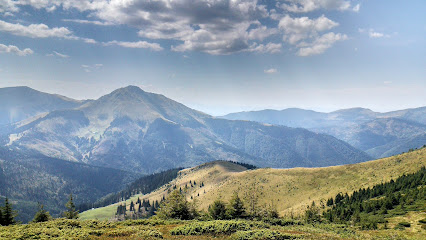
Rodnei Mountains National Park
Discover the breathtaking beauty and outdoor adventures of Rodnei Mountains National Park in Romania, a paradise for nature lovers and explorers.
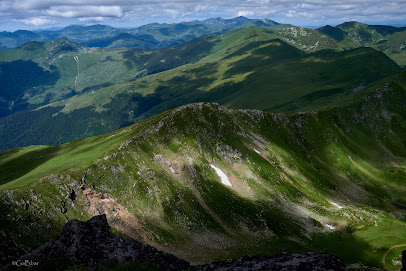
Pietrosul Rodnei
Explore the breathtaking landscapes of Pietrosul Rodnei, a nature preserve in Romania offering stunning views, diverse wildlife, and unforgettable outdoor adventures.
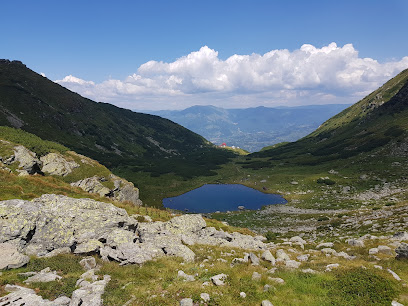
Ruinele Cetății Rodnei
Explore the rich history and stunning views at Ruinele Cetății Rodnei, a must-visit historical landmark in Romania's enchanting landscapes.
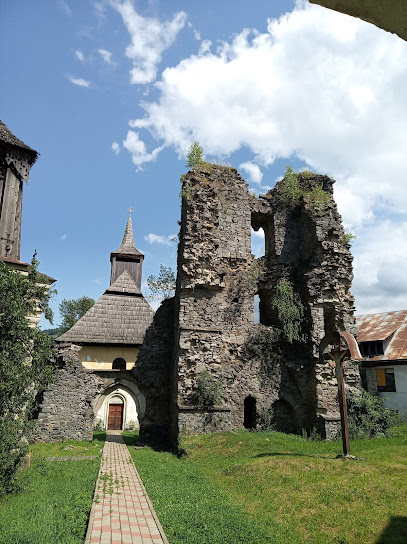
Rodna Mountains
Discover the breathtaking Rodna Mountains, a haven for outdoor adventure and stunning natural beauty in Romania's Eastern Carpathians.
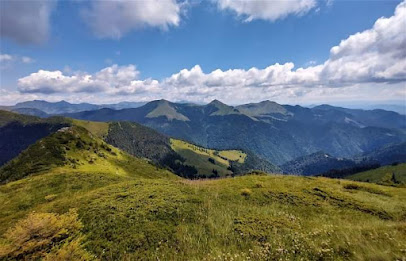
Pasul Rotunda
Experience the stunning beauty of Pasul Rotunda, a breathtaking mountain pass in the Carpathian Mountains, perfect for outdoor adventures and serene escapes.
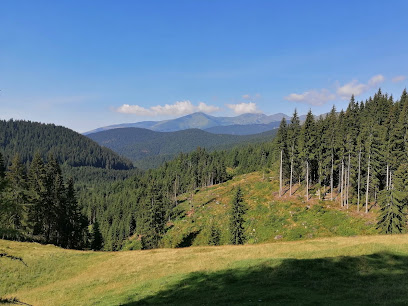
Unmissable attractions to see
Maramures Mountains Natural Park
Explore Maramures Mountains Natural Park, a breathtaking natural paradise in Romania filled with stunning landscapes, diverse wildlife, and rich cultural heritage.
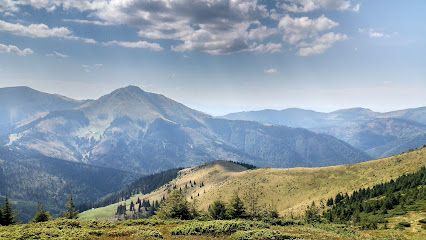
Horses' Falls
Explore the enchanting beauty of Horses' Falls in Borșa, Romania, a breathtaking natural attraction perfect for adventure seekers and nature lovers.
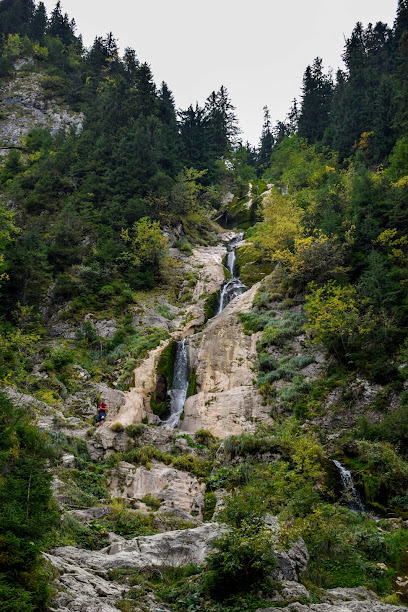
Rodnei Mountains National Park
Explore the stunning Rodnei Mountains National Park in Romania, a paradise for hikers, nature lovers, and adventure seekers, boasting breathtaking landscapes and rich biodiversity.
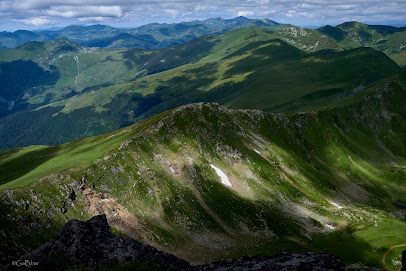
Pietrosul Rodnei
Discover the serene beauty of Pietrosul Rodnei, a breathtaking nature preserve in Romania, perfect for hiking, wildlife watching, and tranquil escapes.
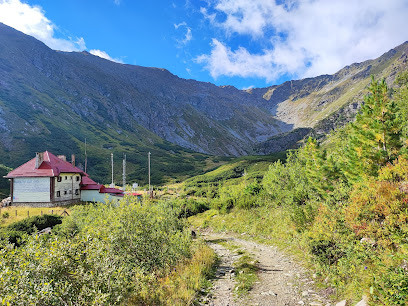
Cascada Cheilor
Explore the enchanting Cascada Cheilor in Sângeorz-Băi, a stunning natural wonder perfect for nature lovers and adventure seekers alike.
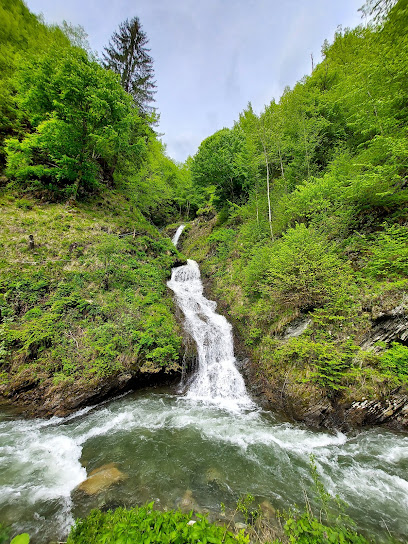
Peștera și izbucul Izvorul Albastru al Izei
Explore the breathtaking Peștera și Izbucul Izvorul Albastru al Izei, a stunning natural gem with crystal-clear springs and captivating cave formations.
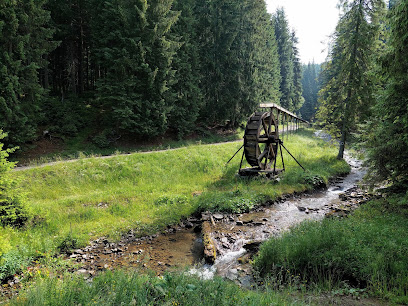
Varful Pietrosu
Discover the breathtaking landscapes and rich biodiversity at Varful Pietrosu National Reserve, a must-visit destination for nature lovers and adventure seekers.
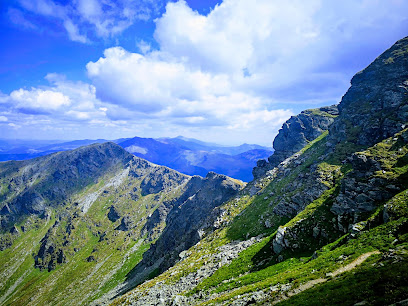
Assembly Church Holy Archangels Michael and Gabriel
Discover the architectural beauty and spiritual tranquility of the Assembly Church Holy Archangels Michael and Gabriel in Rozavlea, Romania.
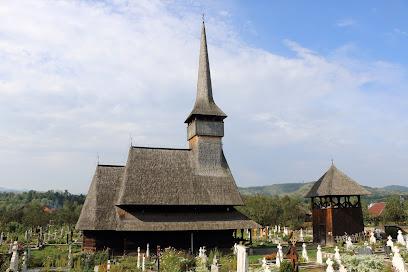
Parcul Național Munții Rodnei
Explore the natural wonders and breathtaking landscapes of Parcul Național Munții Rodnei, a national park that promises adventure and tranquility.
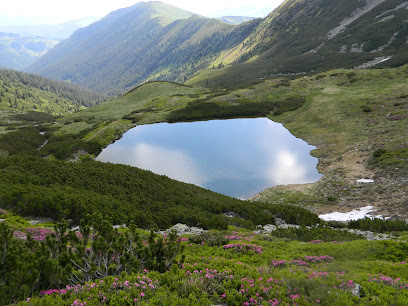
Cascada Măgura
Experience the breathtaking beauty of Cascada Măgura, Romania's hidden gem, offering stunning views and serene hiking trails in nature's embrace.
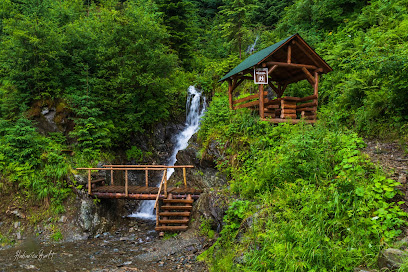
Ethnographic and Mining
Explore the Ethnographic and Mining Museum in Rodna for a unique insight into Romania's rich cultural and industrial history, perfect for history lovers and curious travelers alike.
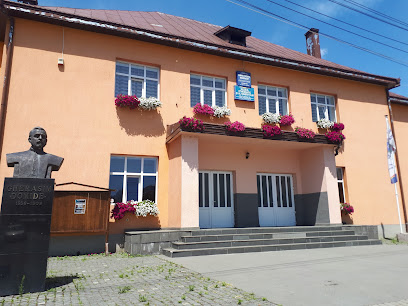
Cave Stone Rea
Explore Cave Stone Rea in Borșa, Romania - a stunning natural attraction known for its breathtaking rock formations and serene landscapes perfect for adventurers.
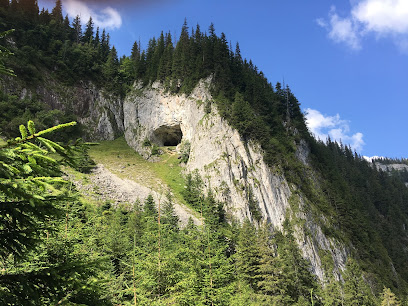
Masa haiducului Pintea
Explore Masa Haiducului Pintea in Săcel, Romania, where folklore meets breathtaking landscapes in an unforgettable cultural experience.
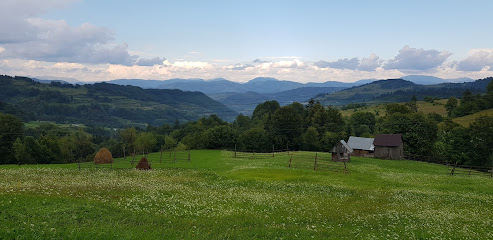
Sfinxul Muntilor Rodnei
Explore the stunning Sfinxul Muntilor Rodnei, a natural wonder in Romania, perfect for hiking, photography, and immersing in nature's tranquility.
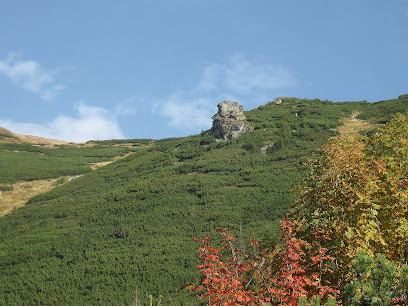
Piatra Baitei
Explore the breathtaking Piatra Baitei in Baile Borșa, a natural wonder offering stunning views, hiking trails, and rich wildlife in the heart of the Carpathians.
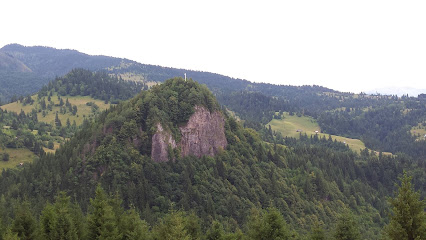
Essential places to dine
Pastravaria RIN ROMULI
Discover authentic Romanian cuisine at Pastravaria RIN ROMULI, where fresh trout meets stunning natural beauty in Romuli.
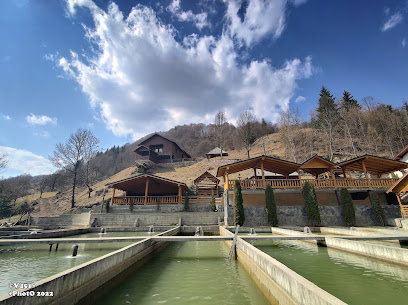
Pensiunea Bradului 4*
Experience authentic Romanian cuisine at Pensiunea Bradului - where traditional flavors meet stunning views in Mureșenii Bârgăului.
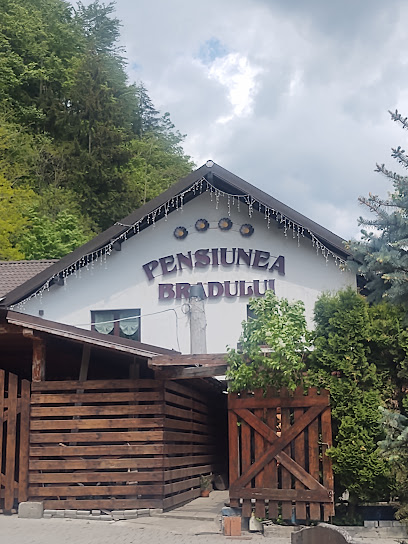
Hotel Roman
Discover comfort and elegance at Hotel Roman in Borșa—your perfect getaway with exceptional dining and wellness facilities.
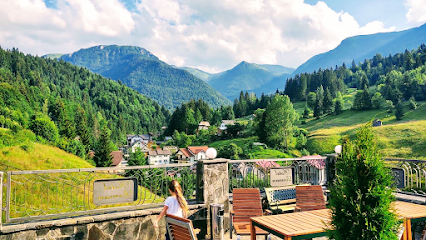
Alpina Blazna
Discover Alpina Blazna: A picturesque lodge in Șanț offering cozy accommodations and exquisite local cuisine amidst breathtaking mountain scenery.

Viva
Experience exquisite Romanian cuisine at Restaurant Viva in Borșa - where tradition meets modern dining in an inviting atmosphere.
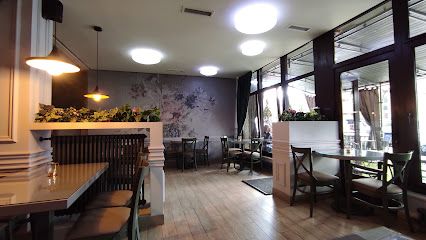
Pensiune - Restaurant - Pizzerie 2 Pauni
Experience authentic Romanian flavors at Pensiune - Restaurant - Pizzerie 2 Pauni in scenic Borșa.
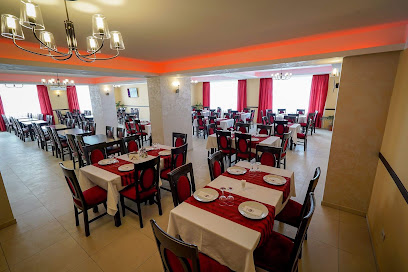
Pizzeria Rustica
Discover the flavors of Italy and Romania at Pizzeria Rustica in Borșa – where every meal is a celebration of culinary excellence.
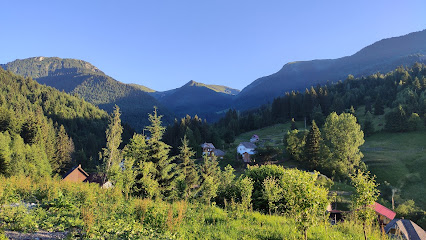
Restaurant Mega Park
Experience authentic Transylvanian flavors at Restaurant Mega Park in Sângeorz-Băi - where tradition meets taste.
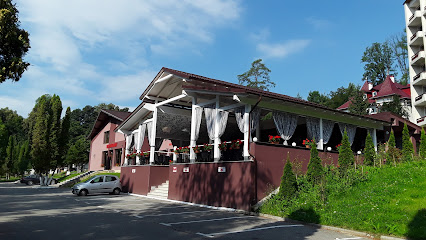
PENSIUNEA ROYAL
Discover comfort and authentic Romanian flavors at Pensiunea Royal in Borșa – your perfect retreat amidst stunning landscapes.
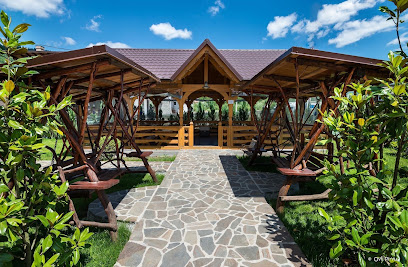
The Black Goat
Experience authentic Romanian cuisine at The Black Goat in Moisei – where tradition meets comfort amidst stunning landscapes.
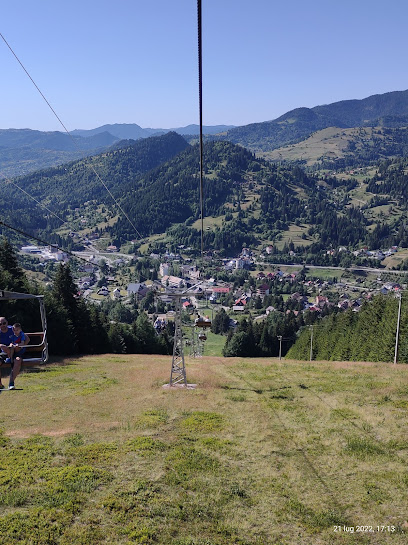
Restaurant Traditional Casa lu' Dochia - Breb
Discover the taste of Romania at Restaurant Traditional Casa lu' Dochia in Breb - where authentic flavors meet traditional hospitality.
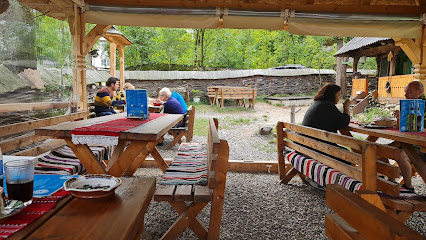
Pensiune Restaurant Neagrăi Capra
Experience authentic Romanian cuisine and warm hospitality at Pensiune Restaurant Neagrăi Capra in Moisei's stunning landscapes.
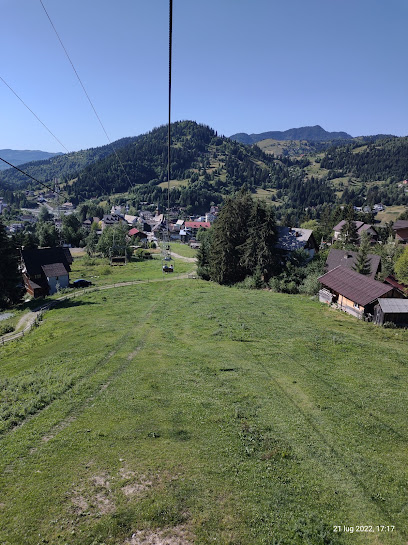
Popasul lu’ Vodă
Experience authentic Romanian cuisine and warm hospitality at Popasul lu’ Vodă in beautiful Borșa.
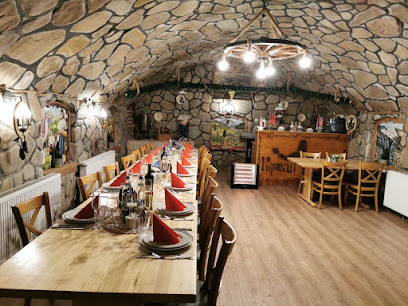
Popasul Boierilor
Discover authentic Romanian flavors in a cozy setting at Popasul Boierilor in Tiha Bârgăului.
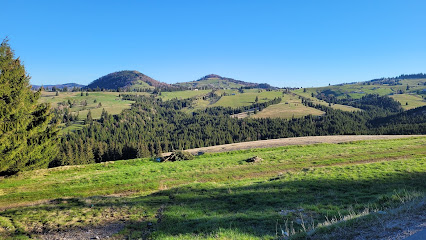
La Borsanu
Experience authentic Romanian flavors at La Borsanu in Năsăud – where every dish tells a story.
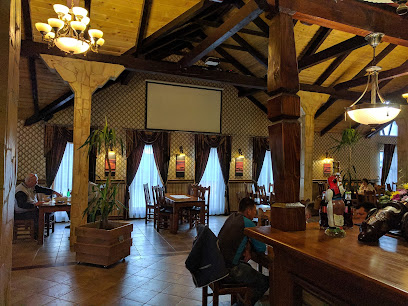
Markets, malls and hidden boutiques
Rodnei Mountains National Park
Discover the untamed beauty of Rodnei Mountains National Park, a haven for nature lovers and adventure seekers in Romania's stunning landscapes.
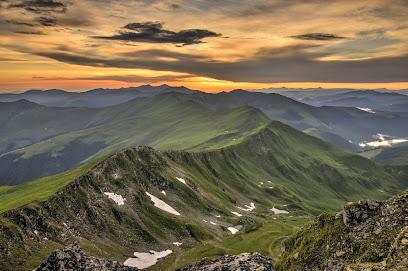
Romanian Boutique
Explore the charm of Romania through authentic souvenirs at Romanian Boutique, a treasure trove of handcrafted art and local delights.
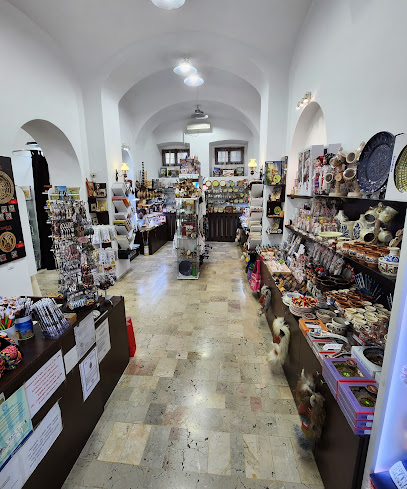
Unicarm BORȘA
Explore Borșa's local flavors and essentials at Unicarm, your go-to supermarket for fresh produce and unique Romanian products.
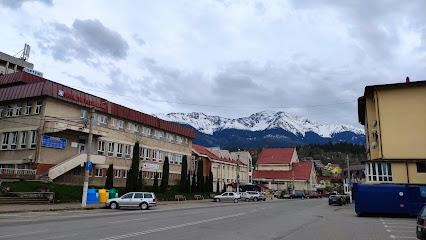
my romanian store
Explore My Romanian Store for unique handcrafted souvenirs that celebrate Romania's rich culture and artistry in the heart of Bucharest.
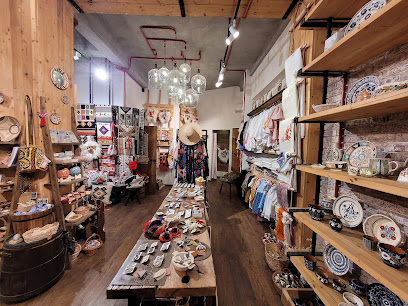
Chic Bijoux - Jewelry Shop
Discover elegant handcrafted jewelry at Chic Bijoux in Cluj-Napoca, where every piece is a unique treasure waiting to be found.
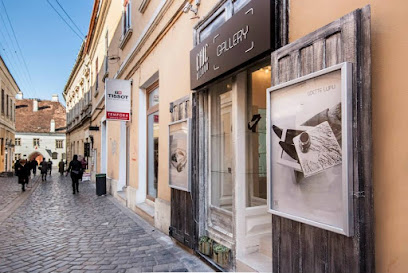
Centru Comercial Atlantis Moisei
Visit Centru Comercial Atlantis Moisei for a unique shopping experience filled with local delights and unforgettable souvenirs in the heart of Moisei.
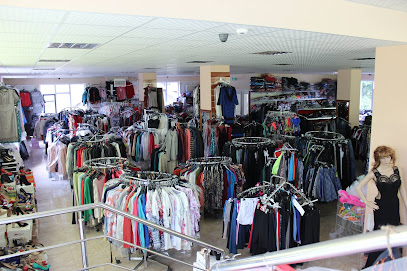
Pepco
Pepco in Sângeorz-Băi: Your one-stop shop for clothing, baby wear, home goods, and toys in a friendly and vibrant atmosphere.
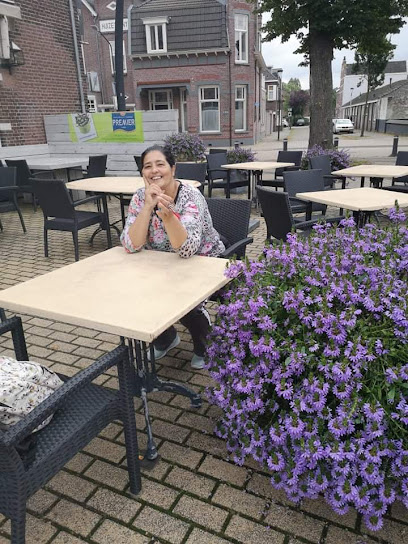
Utilcasa
Explore Utilcasa in Borșa, the ultimate shopping destination offering a unique blend of local charm and modern retail experiences.
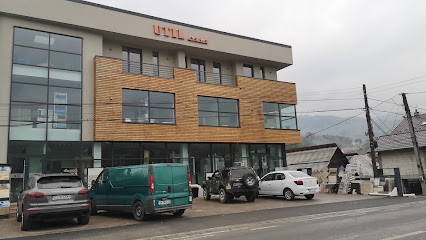
TricouPersonalizat.Ro
Explore TricouPersonalizat.Ro in Moisei for unique custom t-shirts that capture your travel memories with style and creativity.
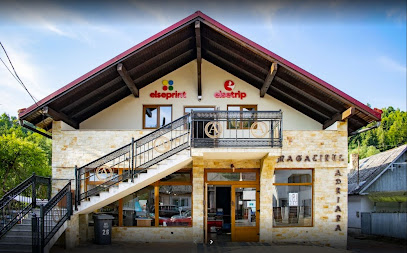
Ora Magica
Explore the charm of Romanian craftsmanship at Ora Magica, your boutique destination for unique souvenirs and local artistry in Maieru.
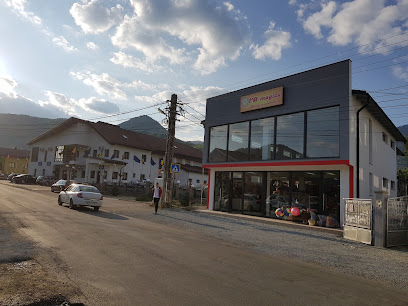
Magazin alimentar S.C. Lunca
Discover the flavors of Moisei at Magazin alimentar S.C. Lunca, your local supermarket for fresh produce and authentic Romanian products.
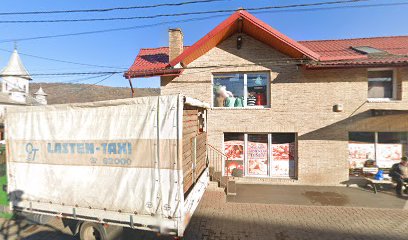
VASILE SUSCA -Atelier de Măsti traditionale
Explore Vasile Susca - Atelier de Măsti, a charming boutique in Săcel, where artistry and Romanian cultural heritage come to life through exquisite handmade masks.
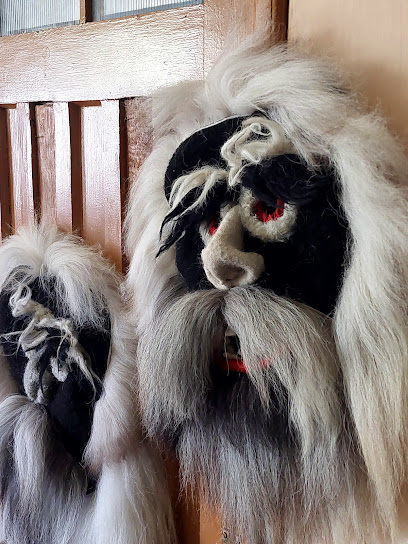
Supermarket Natalia
Discover authentic Romanian flavors and local groceries at Supermarket Natalia in Moisei.
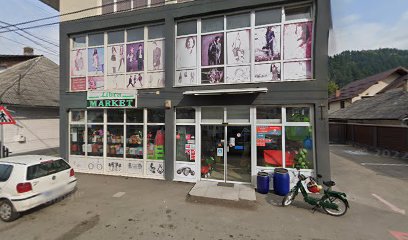
Mony Market &Noblesse cafe
Discover the essence of Romanian culture at Mony Market & Noblesse Cafe; a perfect blend of shopping and exquisite coffee in Săcel.
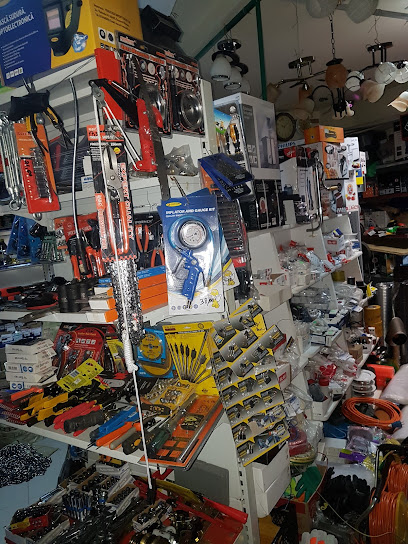
Magazin Mixt
Explore the heart of Borșa at Magazin Mixt, a boutique grocery store offering local products, artisan goods, and fresh produce for every traveler.
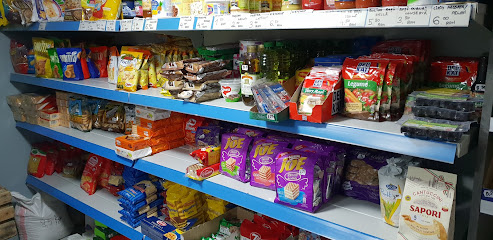
Essential bars & hidden hideouts
Old Jacku
Discover Old Jacku, a cozy lounge in Șieu, Romania, where relaxation meets local charm for an unforgettable experience.
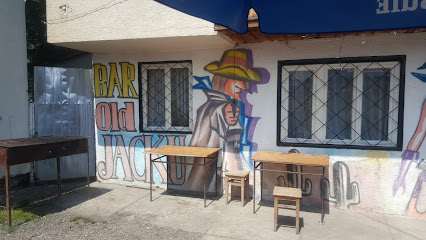
Remus
Discover Remus in Borșa - where delightful drinks and a cozy atmosphere meet the stunning landscapes of Romania.
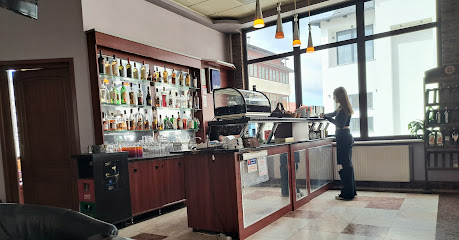
Luca
Discover Luca in Borșa, where the charm of a local bar meets a vibrant atmosphere and a delightful selection of drinks.
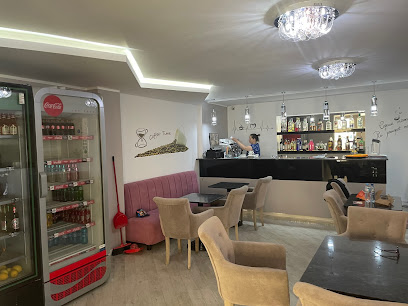
Bar O.K
Discover Borșa's hidden gem, Bar O.K, where local charm meets refreshing drinks in a cozy atmosphere perfect for unwinding.
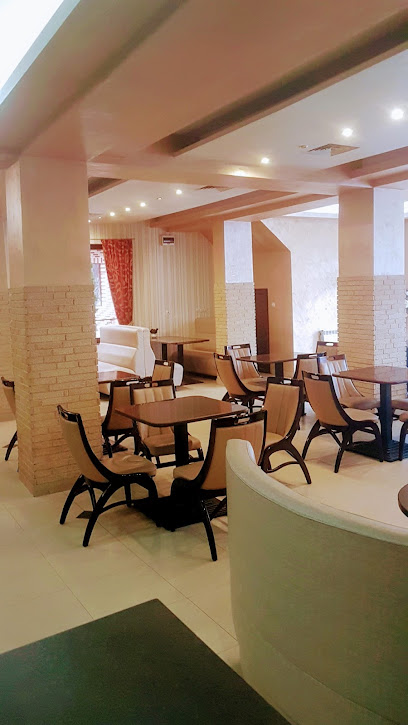
Patrick's Pub
Discover the cozy ambiance and local flavors at Patrick's Pub in Poienile Izei, where warm hospitality and delicious drinks await you.
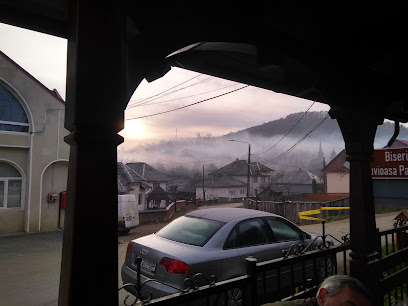
Bar Trestau
Discover the charm of Bar Trestau in Ieud, Romania, where local flavors and a cozy atmosphere await every visitor.
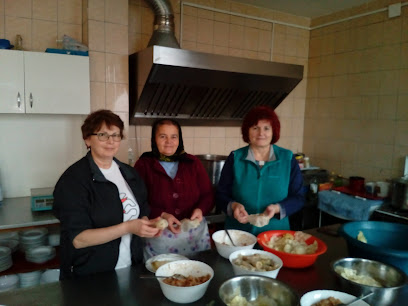
Crisval
Discover the charm of Crisval in Borșa, where scenic views and local drinks create the perfect escape for travelers seeking relaxation and culture.
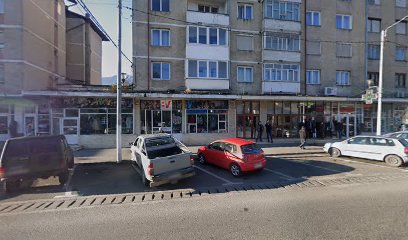
Disco Bar
Experience the electrifying nightlife at Disco Bar in Poiana Ilvei, where vibrant music and friendly vibes create unforgettable moments.
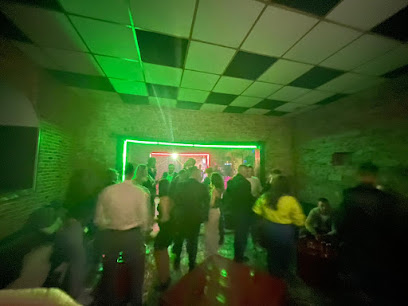
Crema Caffe
Experience the cozy charm of Crema Caffe in Borșa, where delightful drinks and local hospitality await you in a picturesque setting.
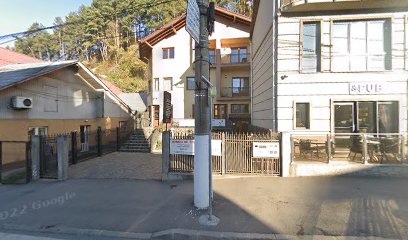
Jos Pălăria
Discover the charm of Rodna at Jos Pălăria Pub, where local brews and vibrant culture come alive in a welcoming atmosphere.
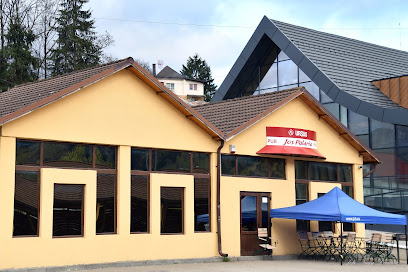
Cafe Bar Select
Experience the charm of Poiana Ilvei at Cafe Bar Select, where local flavors and a cozy atmosphere await every visitor.
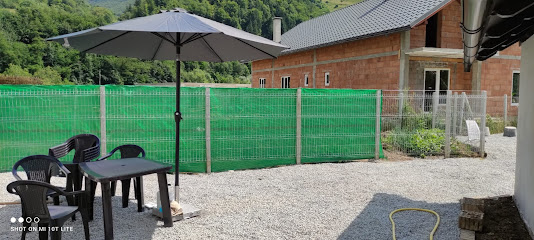
Adi's Bar
Discover the lively ambiance and diverse drink selection at Adi's Bar, a top spot for relaxation and socializing in Vișeu de Sus.

Bar Gardena
Experience the vibrant atmosphere of Bar Gardena in Bistrița, where local culture meets refreshing drinks in a cozy setting.
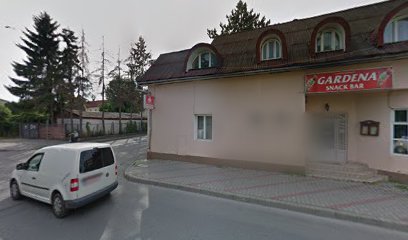
Garden Bar
Discover the charm of Borșa at the Garden Bar, where relaxation meets local flavors in a lush outdoor setting.
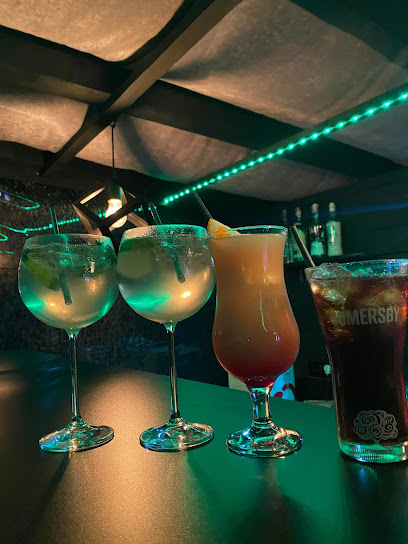
Bar “La Ruposu”
Discover Bar “La Ruposu” in Șieu for a vibrant local atmosphere, refreshing drinks, and a taste of Romanian nightlife.
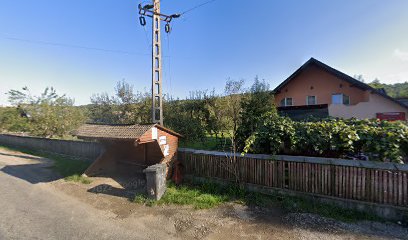
Local Phrases about Rodnei Mountains
-
- HelloSalut
[sah-loot] - GoodbyeLa revedere
[lah reh-veh-deh-reh] - YesDa
[dah] - NoNu
[noo] - Please/You're welcomeTe rog
[teh rog] - Thank youMulțumesc
[mool-tsoo-mesk] - Excuse me/SorryScuzați-mă
[skoo-zats mah] - How are you?Ce mai faci?
[cheh my fahch?] - Fine. And you?Bine. Și tu?
[bee-neh. shee too?] - Do you speak English?Vorbiți engleză?
[vor-beetzee en-gle-zah?] - I don't understandNu înțeleg
[noo in-tseh-leg]
- HelloSalut
-
- I'd like to see the menu, pleaseAș dori să văd meniul, vă rog
[ush doh-ree sah vad men-yool, vah rog] - I don't eat meatNu mănânc carne
[noo muh-nuhnk kahr-neh] - Cheers!Noroc!
[noh-rok] - I would like to pay, pleaseAș dori să plătesc, vă rog
[ush doh-ree sah pluh-tesk, vah rog]
- I'd like to see the menu, pleaseAș dori să văd meniul, vă rog
-
- Help!Ajutor!
[ah-yoo-tor] - Go away!Du-te!
[doo-teh] - Call the Police!Sună la Poliție!
[soo-nuh lah po-lee-tsyeh] - Call a doctor!Sună un doctor!
[soo-nuh oon dok-tor] - I'm lostM-am pierdut
[mahm pyehr-dooot] - I'm illSunt bolnav
[soont bohl-nav]
- Help!Ajutor!
-
- I'd like to buy...Aș dori să cumpăr...
[ush doh-ree sah koom-par] - I'm just lookingDoar mă uit
[doh-ar muh ooit] - How much is it?Cât costă?
[kaht koh-stah?] - That's too expensiveEste prea scump
[es-teh prah skoomp] - Can you lower the price?Puteți să scădeți prețul?
[poo-tehts sah skuh-dehts preh-tsool?]
- I'd like to buy...Aș dori să cumpăr...
-
- What time is it?Cât este ceasul?
[kaht yes-teh chah-sool] - It's one o'clockEste ora unu
[es-teh oh-rah oon-oo] - Half past (10)O jumătate (10)
[oh joo-muh-tah-teh] - MorningDimineața
[dee-mee-nyatsah] - AfternoonDupă-amiază
[doo-puh ah-myah-zah] - EveningSeara
[seh-ah-rah] - YesterdayIeri
[yehr] - TodayAstăzi
[ahs-tuhz] - TomorrowMâine
[muh-ee-neh] - 1Unu
[oo-noo] - 2Doi
[doy] - 3Trei
[tray] - 4Patru
[paht-roo] - 5Cinci
[cheen-chee] - 6Șase
[shah-seh] - 7Șapte
[shahp-teh] - 8Opt
[opt] - 9Nouă
[noo-wah] - 10Zece
[zeh-che]
- What time is it?Cât este ceasul?
-
- Where's a/the...?Unde este unul/o...
[oon-deh yes-teh oon-ool/oh] - What's the address?Care este adresa?
[ka-reh yes-teh ah-dre-sah] - Can you show me (on the map)?Puteți să-mi arătați (pe hartă)?
[poo-teh-tsi sah-mi a-ra-tsa-tsi (peh har-tah)] - When's the next (bus)?Când este următorul (autobuz)?
[kund yes-teh oor-muh-toh-rool (ow-toh-booze)] - A ticket (to ....)Un bilet (către ....)
[oon bee-let (kuh-tre)]
- Where's a/the...?Unde este unul/o...
History of Rodnei Mountains
-
The Rodnei Mountains, known for their rugged beauty, have been inhabited since prehistoric times. Archaeological evidence suggests that early human settlements in the area date back to the Neolithic era. The Dacians, an ancient Indo-European people, were among the first known inhabitants. They left behind various artifacts, including tools and pottery, that provide insight into their way of life.
-
During the Roman Empire’s expansion, the Rodnei Mountains region was incorporated into the province of Dacia around 106 AD. The Romans established mining operations in the area, exploiting its rich deposits of gold and other minerals. Ruins of Roman fortifications and mining sites can still be found, bearing witness to this period of industrious Roman influence.
-
In the Middle Ages, the Rodnei Mountains were strategically important due to their natural defenses and resources. Several fortresses were built to protect the region from invasions. One notable example is the Rodna Medieval Fortress, constructed in the 13th century. It served as a defensive stronghold against Mongol invasions and later conflicts involving the Hungarian Kingdom and the Principality of Transylvania.
-
The 18th century marked a significant period of mining activity in the Rodnei Mountains. Under Habsburg rule, the region saw the establishment of organized mining operations, particularly for gold and silver. The influx of miners and the development of mining towns like Rodna and Băile Borșa contributed to the area's economic growth. Architectural remnants from this era, including mining infrastructure and worker settlements, are still visible today.
-
During World War II, the Rodnei Mountains were a site of strategic importance and witnessed several military operations. The rugged terrain provided refuge for partisan groups resisting Axis forces. The local population endured significant hardships, including forced labor and displacement. Memorials and monuments in the area commemorate the bravery and sacrifices of those who lived through this tumultuous period.
-
The Rodnei Mountains are not only rich in history but also in cultural heritage. The region is home to various ethnic groups, including Romanians, Hungarians, and Ukrainians, each contributing to a diverse cultural tapestry. Traditional crafts, folklore, and customs have been preserved over centuries. Festivals celebrating local traditions, such as the Rodna Shepherds' Festival, offer a glimpse into the enduring cultural practices of the mountain communities.
Rodnei Mountains Essentials
-
The Rodnei Mountains are located in northern Romania, within the Maramureș and Bistrița-Năsăud counties. The nearest major city is Cluj-Napoca, which has an international airport (Avram Iancu Cluj International Airport). From Cluj-Napoca, you can reach the Rodnei Mountains by renting a car or taking a train to nearby towns such as Borșa or Rodna. The journey by car typically takes around 3 to 4 hours. Alternatively, you can use intercity buses that connect Cluj-Napoca to these towns.
-
Public transportation options within the Rodnei Mountains region include local buses and taxis. Buses connect the main towns and villages, but schedules can be irregular. Renting a car is a convenient option for exploring the area at your own pace. For those interested in outdoor activities, cycling and hiking are popular ways to get around and enjoy the natural beauty of the mountains.
-
The official currency in Romania is the Romanian Leu (RON). Credit and debit cards are widely accepted in hotels, restaurants, and larger shops, but it is advisable to carry cash, especially in smaller establishments and rural areas. ATMs are available in towns such as Borșa and Rodna, but be prepared with sufficient cash when heading into more remote areas.
-
The Rodnei Mountains are generally a safe destination for tourists. However, it is important to take standard precautions. Avoid walking alone at night in unfamiliar areas and keep an eye on your belongings in crowded places. There are no specific high-crime areas targeting tourists, but staying vigilant and aware of your surroundings is always advisable. When hiking, ensure you have appropriate gear and let someone know your plans, as weather conditions can change rapidly.
-
In case of emergency, dial 112 for immediate assistance. There are local police stations and medical facilities in towns such as Borșa and Rodna. It is recommended to have travel insurance that covers medical emergencies. For minor health issues, local pharmacies can provide over-the-counter medications. When hiking, always carry a first-aid kit and a means of communication.
-
Fashion: Do dress in layers and wear sturdy hiking boots when exploring the mountains. Avoid wearing overly flashy or revealing clothing. Religion: Do respect local customs and traditions, especially when visiting churches and monasteries. Public Transport: Do be respectful to other passengers and give up your seat to elderly individuals. Don’t eat or drink on public transport. Greetings: Do greet people with a polite handshake and a smile. A slight nod of the head is also a sign of respect. Eating & Drinking: Do try local delicacies and accept food offerings graciously. Don’t refuse hospitality, as it is considered impolite.
-
To experience the Rodnei Mountains like a local, visit the weekly markets in towns such as Borșa where you can buy fresh produce and traditional Romanian goods. Engage with locals, as they are often friendly and willing to share stories about the area's history and culture. Don't miss visiting the Pietrosu Mare peak, the highest in the Rodnei Mountains, for breathtaking views. For a unique experience, join a guided tour that includes a stay in a traditional Romanian guesthouse.
Nearby Cities to Rodnei Mountains
-
Things To Do in Cluj-Napoca
-
Things To Do in Suceava
-
Things To Do in Satu Mare
-
Things To Do in Chernivtsi
-
Things To Do in Sighisoara
-
Things To Do in Ivano-Frankivsk
-
Things To Do in Mukachevo
-
Things To Do in Uzhhorod
-
Things To Do in Nyiregyhaza
-
Things To Do in Debrecen
-
Things To Do in Deva
-
Things To Do in Brasov
-
Things To Do in Iasi
-
Things To Do in Ternopil
-
Things To Do in Lviv








